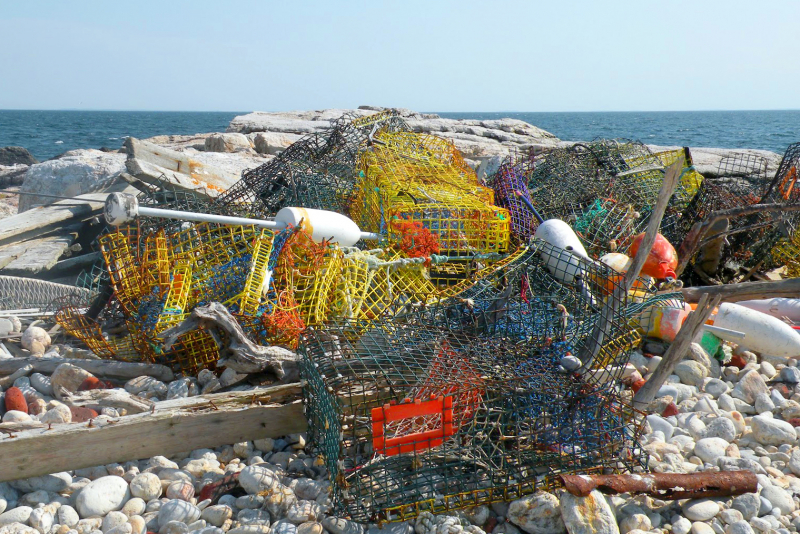
Today, the National Fish and Wildlife Foundation (NFWF), a partner of the NOAA Marine Debris Program, announced eight grants totaling $412,000 to support activities in California, Connecticut, Florida, Maine, Massachusetts, Mississippi, New Jersey, and Oregon to reduce the amount of derelict fishing gear in the marine environment. The grantees will leverage an additional $247,000 in matching contributions, with a total of $659,000 dedicated for this work that is anticipated to prevent more than 845,000 pounds of fishing gear from potentially entering coastal waters.
Derelict fishing gear is fishing gear that is lost, abandoned, or discarded in the marine environment, and includes lines, nets, pots, traps, floats, and other gear. Once lost or discarded in the ocean or Great Lakes, gear can continue to trap and kill fish, crustaceans, marine mammals, sea turtles, and seabirds, also known as ghost fishing.
The grants announced today are provided through the Fishing for Energy Grants Program, a partnership between NOAA, NFWF, Covanta, and Schnitzer Steel Industries that began in 2008 to promote proper disposal of old, unusable, and derelict fishing gear. The program provides the fishing community with a free option for disposing of old or unwanted gear, which is then recycled or converted into energy. Since the program’s inception, it has provided collection bins at 56 ports in 13 states, and collected over 4 million pounds of fishing gear, thus preventing it from entering U.S. coastal water. The program has also funded past projects that developed and tested fishing gear innovations to reduce the impacts of gear loss on the environment.
With this year’s grants, the program will continue to fund the installation and maintenance of fishing gear collection bins. For the first time, the Fishing for Energy program will also fund projects that help to support capacity and logistics development needs of applicants to host bins for gear collection, recycling, upcycling, and/or energy conversion in the future.
The full announcement and descriptions of this year’s awarded projects can be found on the NFWF website.

Keen to learn more about the technology-ghost to energy technologies used. Please advise.
Best,
Mutumba Faisal
Uganda Junior Rangers